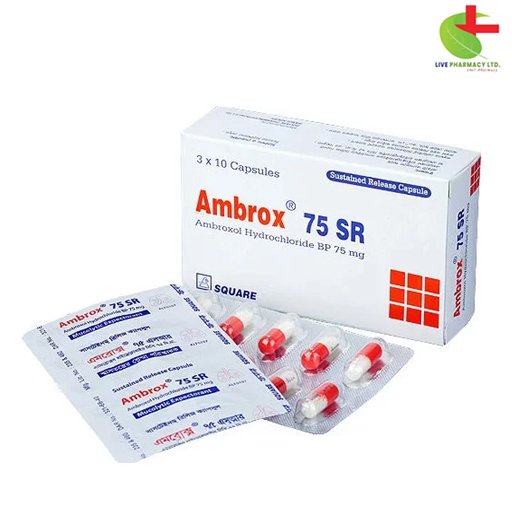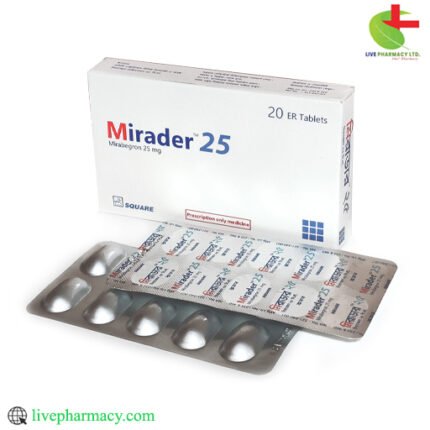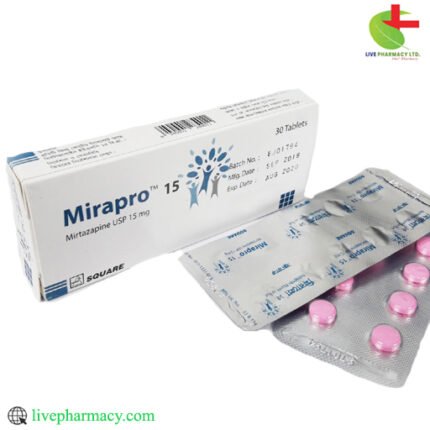Ambrox SR 75
55.00৳ Strip
- Ambroxol Hydrochloride addresses respiratory conditions like productive cough and inflammatory disorders of the upper and lower respiratory tracts.
- It effectively treats asthma with thick mucus, bronchiectasis, chronic pneumonia, and inflammatory diseases of the rhinopharyngeal tract.
- As the active metabolite of bromhexine, Ambroxol improves sputum rheology by hydrating mechanisms, facilitating mucus liquefaction, and easing expectoration.
- It exhibits anti-inflammatory properties, reducing bronchial hyperactivity and improving airway patency in patients with COPD.
- Dosage varies by age and formulation, with options including pediatric drops, syrup, and sustained-release capsules for adults and older children.
 Brand
Brand
|
Square Pharmaceuticals PLC |
|---|---|
 Generics
Generics
|
Ambroxol Hydrochloride |
Indications
Ambroxol Hydrochloride is a medication indicated for various respiratory conditions, including:
- Productive cough, where there is an excessive production of mucus.
- Acute and chronic inflammatory disorders affecting both upper and lower respiratory tracts, such as bronchitis.
- Inflammatory diseases of the rhinopharyngeal tract, including laryngitis, pharyngitis, sinusitis, and rhinitis, associated with thick mucus.
- Asthmatic bronchitis and bronchial asthma with thick expectoration.
- Bronchiectasis, a condition characterized by damage and widening of the airways.
- Chronic pneumonia and other respiratory ailments.
Pharmacology
Ambroxol acts as the active metabolite of bromhexine and has demonstrated superior bronchosecretolytic effects. It works by:
- Improving the rheology of sputum by hydrating mechanisms, thereby liquefying mucus in the respiratory tract, making it easier to expectorate and reducing dyspnea.
- Stimulating the production of phospholipids in surfactant by alveolar cells, which contributes to reducing superficial tension in the alveoli.
- Reducing bronchial hyperactivity and exhibiting anti-inflammatory properties by inhibiting the production of cellular cytokines and arachidonic acid metabolites.
- Traditionally improving airway patency in patients with Chronic Obstructive Pulmonary Disease (COPD).
Dosage & Administration
The dosage varies according to age and formulation:
- Pediatric Drops: Administered orally, with dosages ranging from 0.5 ml to 1.25 ml twice daily for children up to 2 years old.
- Syrup: Dosages range from 2.5 ml to 10 ml, depending on the age of the patient, administered 2-3 times a day.
- Sustained Release Capsule: Recommended for adults and children over 12 years old, with a usual dosage of one capsule daily.
Interaction
Ambroxol should not be taken concurrently with antitussives like Codeine, as they may interfere with expectoration.
Contraindications
Patients with known hypersensitivity to Ambroxol or Bromhexine should avoid its use.
Side Effects
Common gastrointestinal side effects may include epigastric pain and stomach discomfort. Rarely, allergic reactions such as eruptions, urticaria, or angioneurotic edema have been reported.
Pregnancy & Lactation
Although teratogenic and fetal toxicity studies have shown no harmful effects, caution is advised, especially during the first trimester of pregnancy. Safety during lactation has not been established.
Precautions & Warnings
Ambroxol should be used cautiously in patients with gastric and duodenal ulceration or convulsive disorders. Patients with hepatic and renal insufficiency should also take it with caution.
Therapeutic Class
Ambroxol Hydrochloride belongs to the class of drugs known as cough expectorants and mucolytics.
Storage Conditions
The medication should be protected from direct light exposure, stored in a dry place at temperatures not exceeding 30°C, and kept out of the reach of children to maintain its stability and efficacy.













Reviews
There are no reviews yet.